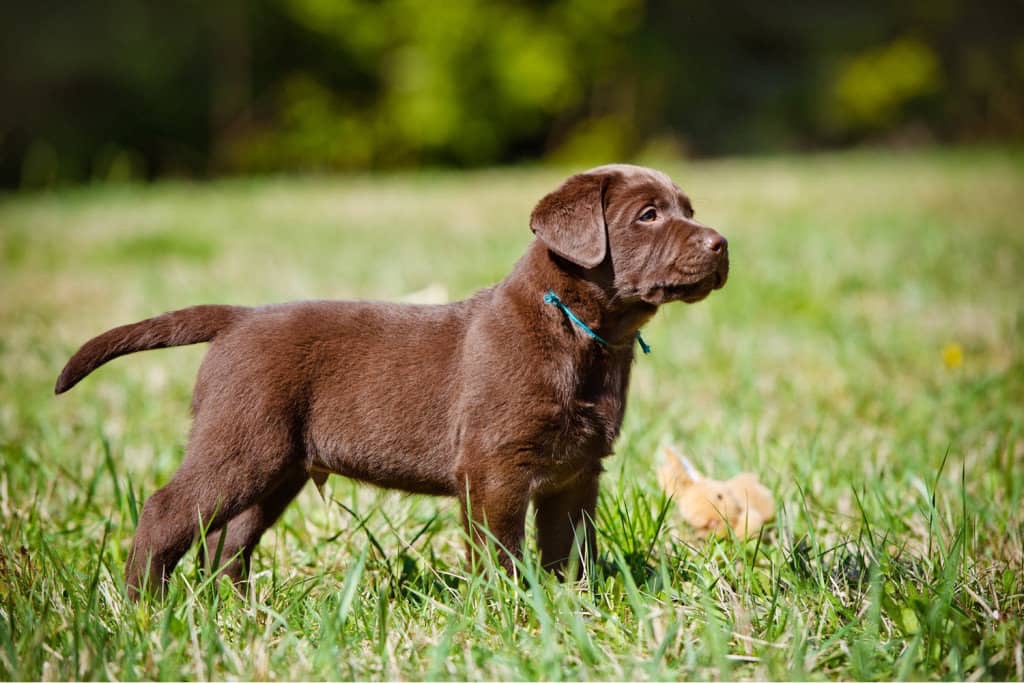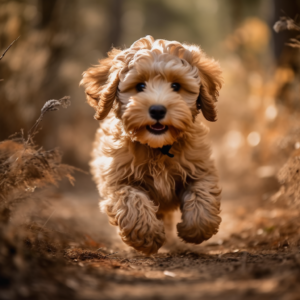As your puppy reaches the 10 to 12-week mark, they continue to grow and develop at a rapid pace. This period is crucial for their learning and socialization. Building upon the foundation established in earlier stages, there are specific activities and skills your puppy should be focusing on during this time. Let’s explore what your 10 to 12-week-old puppy should be doing and learning.

1. Continued Socialization
Socialization remains a vital aspect of your puppy’s development during this stage. Continue exposing them to a variety of people, animals, and environments. Encourage positive interactions with unfamiliar individuals and encourage controlled playtime with other well-socialized dogs. Exposing your puppy to different situations will help them become well-adjusted and confident as they grow.
2. Advanced Training Commands
As your puppy becomes more familiar with basic commands such as “sit” and “stay,” it’s time to introduce more advanced training commands. Teach them commands like “lie down,” “leave it,” and “wait.” Use positive reinforcement techniques and reward-based training to encourage their learning. Keep training sessions short, fun, and engaging to maintain their interest and motivation.
3. Reinforcing Bite Inhibition
Bite inhibition is an ongoing process for your puppy. Continue reinforcing proper biting behavior by redirecting them to appropriate chew toys whenever they attempt to nip or bite. Consistently provide feedback through yelping or saying “ouch” to signal when their bites are too hard. This helps them understand and adjust their bite pressure, which is essential for their interactions with humans and other animals.
4. Increasing Exercise and Mental Stimulation
As your puppy grows, their energy levels increase. Ensure they receive ample exercise and mental stimulation to prevent boredom and provide appropriate outlets for their energy. Engage in interactive play sessions, take them for regular walks, and provide puzzle toys or treat-dispensing toys that encourage problem-solving and mental engagement. Remember to balance exercise with rest to avoid overexertion.
5. Proper Leash Walking
Continue leash training and reinforce proper leash walking behavior. Practice walking on a loose leash, rewarding your puppy for staying by your side. Introduce them to different walking environments, gradually exposing them to busier streets and more distractions. Consistency, positive reinforcement, and patience are key to helping them become comfortable and well-behaved on a leash.
6. Handling and Grooming
Continue getting your puppy accustomed to handling and grooming routines. Regularly brush their coat, clean their ears, and trim their nails as needed. Gradually increase the duration and intensity of handling to ensure they remain comfortable and cooperative during grooming sessions. Use positive reinforcement and reward-based training to create positive associations with grooming experiences.
7. Introducing Basic House Manners
As your puppy grows older, it’s important to establish basic house manners. Teach them boundaries and rules within the household. This includes teaching them to wait patiently before going through doors, not jumping on furniture unless invited, and not begging for food during mealtimes. Consistency and positive reinforcement will help them understand and adhere to these house rules.
8. Further Health Care and Vet Visits
Continue with regular health care for your puppy. Schedule veterinarian visits for necessary vaccinations, boosters, and check-ups. Discuss preventive measures such as flea and tick control, heartworm prevention, and ongoing health monitoring. Follow your vet’s recommendations for the specific needs of your puppy’s breed and size.
9. Continued Obedience Training
Obedience training should be an ongoing process throughout your puppy’s development. Reinforce basic commands and work on refining their responses. Practice commands in various environments with increasing distractions to strengthen their obedience skills. Regular training sessions and positive reinforcement will help your puppy continue to progress.
10. Monitoring Teething and Providing Appropriate Chewing Options
During this stage, your puppy will likely be teething. Monitor their chewing habits and provide appropriate chew toys and treats to satisfy their need to chew while also relieving teething discomfort. Ensure that the items they chew on are safe and suitable for their age and size. Discourage them from chewing on inappropriate objects by redirecting their attention to appropriate chew toys.
Browse our website for more free cool information as well as the best products for you puppy
The 10 to 12-week stage is a critical period for your puppy’s growth and learning. By focusing on continued socialization, advanced training commands, reinforcing bite inhibition, increasing exercise and mental stimulation, proper leash walking, handling and grooming, introducing basic house manners, health care and vet visits, continued obedience training, and monitoring teething, you are providing a solid foundation for your puppy’s future. Enjoy this stage of their development and continue to nurture their growth into a well-behaved and happy adult dog.
As an Amazon Associate we earn from qualifying purchases through some links in our articles.




